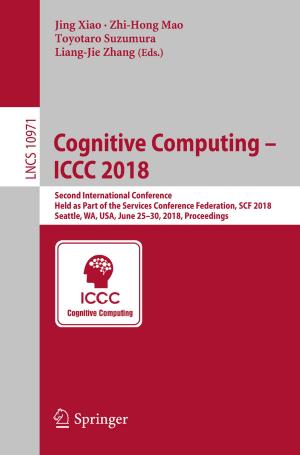Virtual Sociability: From Community To Communitas
Nonfiction, Health & Well Being, Psychology, Social Psychology, Computers, Internet| Author: | Sorin Adam Matei | ISBN: | 9781466095946 |
| Publisher: | Sorin Adam Matei | Publication: | May 8, 2011 |
| Imprint: | Smashwords Edition | Language: | English |
| Author: | Sorin Adam Matei |
| ISBN: | 9781466095946 |
| Publisher: | Sorin Adam Matei |
| Publication: | May 8, 2011 |
| Imprint: | Smashwords Edition |
| Language: | English |
To what degree can the human exchanges we observe online be called “sociability”? In other words, do these exchanges amount to any meaningful type of social organization? Are they more than the mere froth of collective emotion discharging its energy with a lot of noise but little consequence against the wave breakers of social media? Do the social interactions that take place in virtual space—all those kind or not-so-kind words sent back and forth—suggest the same level of commitment, dedication, morality, passion, or even depravity that we see in everyday life? Or, more succinctly, is sociability online less “social,” less “real” than what we see in everyday life?
The present collection of papers reflects some of the most insightful contributions to the Purdue Online Interaction Seminar. Representing a variety of interpretive frameworks, the conversation is circumscribed by a number of themes, of which two are most important. The first one is the nature of online sociability. Are or could online groups be “community-like,” bound by ties as strong as those of kith and kin? Should they be qualified as a type of contractual, rational, self-interested “society”? Or should we propose a new interpretive framework? Should online communities be seen as a type of “communitas”, which is a form of social aggregation that appears during certain initiation rituals? If this is so, are communitas-like virtual spaces characterized by the same transient, liminal state that mixes a variety of contradictory characteristics (temporary and permanent, close and distant, essential and fleeting) that we observe in other types of "communitas"? Can virtual communitas lead to social and personal transformation, just like its traditional counterpart?
Table of Contents
Sorin Adam Matei
Introduction
The book is dead! Long live the ubibook!
User Guide
Susan Huelsing Sarapin
Front Porches and Public Spaces: Planned Communities Online
Pamela Morris
Glimpses of Community on the Web
Brenda Berkelaar Van Pelt
Peering Behind the Curtain: The Virtual Wizard Offers No Guarantees
Brian C. Britt
The Invisible Man: Speaking into the Online Void
Robert N. Yale
Welcome to I-berspace: Media Gratifications in Successful Virtual Communities
Christina Kalinowski
Individualism Online: Virtually Escaping the ‘Massness’ or Vanishing into the ‘Electrovoid’?
W. Scott Sanders
SIDE Theory, Small World Networks, and Smart Mob Formation: A Beginner’s Guide
Online Interaction Seminar: Selected Readings and Discussion Topics
Author Biographies
To what degree can the human exchanges we observe online be called “sociability”? In other words, do these exchanges amount to any meaningful type of social organization? Are they more than the mere froth of collective emotion discharging its energy with a lot of noise but little consequence against the wave breakers of social media? Do the social interactions that take place in virtual space—all those kind or not-so-kind words sent back and forth—suggest the same level of commitment, dedication, morality, passion, or even depravity that we see in everyday life? Or, more succinctly, is sociability online less “social,” less “real” than what we see in everyday life?
The present collection of papers reflects some of the most insightful contributions to the Purdue Online Interaction Seminar. Representing a variety of interpretive frameworks, the conversation is circumscribed by a number of themes, of which two are most important. The first one is the nature of online sociability. Are or could online groups be “community-like,” bound by ties as strong as those of kith and kin? Should they be qualified as a type of contractual, rational, self-interested “society”? Or should we propose a new interpretive framework? Should online communities be seen as a type of “communitas”, which is a form of social aggregation that appears during certain initiation rituals? If this is so, are communitas-like virtual spaces characterized by the same transient, liminal state that mixes a variety of contradictory characteristics (temporary and permanent, close and distant, essential and fleeting) that we observe in other types of "communitas"? Can virtual communitas lead to social and personal transformation, just like its traditional counterpart?
Table of Contents
Sorin Adam Matei
Introduction
The book is dead! Long live the ubibook!
User Guide
Susan Huelsing Sarapin
Front Porches and Public Spaces: Planned Communities Online
Pamela Morris
Glimpses of Community on the Web
Brenda Berkelaar Van Pelt
Peering Behind the Curtain: The Virtual Wizard Offers No Guarantees
Brian C. Britt
The Invisible Man: Speaking into the Online Void
Robert N. Yale
Welcome to I-berspace: Media Gratifications in Successful Virtual Communities
Christina Kalinowski
Individualism Online: Virtually Escaping the ‘Massness’ or Vanishing into the ‘Electrovoid’?
W. Scott Sanders
SIDE Theory, Small World Networks, and Smart Mob Formation: A Beginner’s Guide
Online Interaction Seminar: Selected Readings and Discussion Topics
Author Biographies















